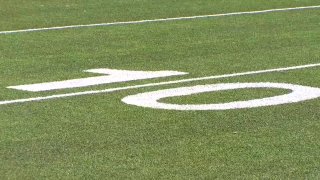
Guidance rolled out Tuesday by Attorney General Maura Healey's office lays out steps that school athletic officials can take to help keep hate and bias out of their programs.
Abby Taylor, chief of Healey's civil rights division, shared the new guidance during a virtual convening for school administrators, athletic directors, coaches, and referees, hosted by the AG's office, Department of Elementary and Secondary Education, Massachusetts Interscholastic Athletic Association and associations representing the state's superintendents and school administrators.
WATCH ANYTIME FOR FREE
Stream NBC10 Boston news for free, 24/7, wherever you are. |
Healey, who was co-captain of her Harvard College basketball team and went on to play professionally in Austria, also announced plans for a conference in late August and early September on addressing hate and bias in school sports, to be followed by a series of regional trainings this fall by Northeastern University's Center for the Study of Sport in Society.
"I'll be the first to say that sports can be an incredibly powerful tool for bringing people together, for bridging the divide that we see too often in communities," said Healey, who is also a Democratic candidate for governor. "We know that through team sports, but in recent months, we have seen an infection of bias and hate make its way into places it should not be -- bullying of fellow students, inappropriate hazing of teammates, racist, antisemitic graffiti or language directed at peers -- and I think it presents us right now with a clear opportunity for us to address this."
Get updates on what's happening in Boston to your inbox. Sign up for our News Headlines newsletter.
One recent high-profile incident involved reports of Duxbury High School football players using Holocaust-related terminology to call plays, a story state legislators referenced last year as they worked to pass a new genocide-education law.
The new guidance from Healey's office recommends athletic directors, coaches, referees and team staff be watchful for misconduct by student athletes, parents and spectators; stop problematic behavior when they see it; provide training and programming about bias and hate in sports; and report incidents of potential bullying or harassment to appropriate school officials.
Taylor said the state offers other related resources, including a school hate crimes resource guide from the Executive Office of Public Safety and Security and Healey's guidance on schools' legal obligations to prevent and address hate and bias incidents.
Local
In-depth news coverage of the Greater Boston Area.
The guidance unveiled Tuesday and the events planned later this year, Taylor said, differ from existing resources in that they are "specifically devoted to the unique elements of the school sports arena."
"You know, in the civil rights division, we do a lot of follow-up with schools after incidents occur, and this guidance is based on what we've seen and learned in terms of the way that problems are most effectively addressed and hopefully can be prevented in the first place," she said.
Cambridge Rindge and Latin senior Anais Killian, a member of the MIAA's student advisory committee, said adults should be "actively involved" in creating spaces to empower and support student athletes as they work to eradicate bias and hate. She gave the example of a program at her school that involves workshops focused around a culture of communication and respect.
Another advisory committee member, Methuen senior Elise Ellis-Wright, said team sports can show that everyone matters and contributes, regardless of their ethnic or educational background.
"I think that's exactly how we do that, focusing on that team culture, emphasizing that, as a team, we need to have that buoyant, lively, refreshing environment," she said. "You allow student athletes to participate and to express who they are, and I think that when we allow each other to do that, we learn so much from one another."



